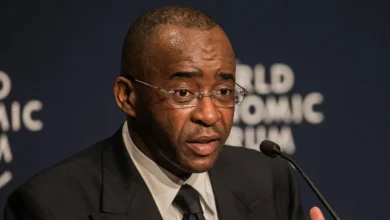Baba Harare Reflects on Gospel Exit, Financial Strains and His Journey Back to Jiti

Zimbabwean musician Braveman Chizvino—better known as Baba Harare—has opened up about his time performing gospel music, the struggles he faced while doing so, and his decision to return to his secular roots in the Jiti genre. After a year-long hiatus focused solely on gospel, Baba Harare says he encountered both spiritual rewards and unexpected hardship.
Baba Harare: From Secular Star to Gospel Artist
Last year, Baba Harare surprised the local music scene by stepping away from secular performances. He rebranded himself as King David, dedicating his public persona to gospel ministry and performing exclusively at church events and conferences. This change was part of a personal spiritual journey, which he believed necessary after becoming a born-again Christian.

He publicly criticised secular music in that period, even calling the Jiti genre “nonsense”.“nonsense”. But as time went by, he began to confront the realities behind the gospel stage.
The Gospel Stage: Spiritual Fulfillment vs Business Reality
While Baba Harare says gospel performances are powerful and meaningful in spreading spiritual messages, his experiences revealed serious gaps when it comes to how gospel artists are treated. He describes a pattern where churches and event promoters expect gospel musicians to perform for free or accept very little compensation, under the notion that ministry overrides any market value.
ALSO READ: Holy Ten’s Fiery Instagram Tirade at Mnangagwa Twins Culminates in Public Apology
Artists are often booked for church events with promises of payment or “tokens” that don’t sufficiently cover expenses—if they’re honouredd at all. In some cases, organisersorganisers fail to deliver on financial promises entirely. Baba Harare shared an incident where he requested only enough money (around US$200) to cover fuel and travel for a gospel event, only to be met with mockery and disrespect when he followed up on the promised payment.
Why He’s Returning to Jiti
Because of these challenges, Baba Harare says he can no longer rely solely on gospel performances for income. He has decided to return to secular music with a renewed appreciation for how both worlds—spiritual ministry and the music business—intersect.
He emphasised that being a Christian doesn’t negate the need to support oneself or value one’s work. His new stance is not about rejecting his faith but seeking respect and fair treatment as both a minister and an artist.
The Response and Larger Debate
Baba Harare’s statements struck a chord. Many fellow musicians and fans rallied behind him, acknowledging that the issue of unpaid or poorly paid performances under “gospel” banners is longstanding. Comments on social media praised his honesty, calling attention to the disconnect between spiritual expectations and economic realities.
Others cautioned that such openness might create tension within faith communities. Some followers believed these conversations should be handled more privately or diplomatically.
What This Means for Gospel Artists
Baba Harare’s story highlights several challenges:
- Financial sustainability: Many gospel artists struggle to balance ministry with the need to make a living.
- Respect and accountability: Agreements often go unfulfilled, and artists feel disrespected when they try to recover even basic expenses.
- Industry growth: Without fair treatment and reliable compensation, gospel music risks stagnation, especially for newer artists
He advises up-and-coming artists not to depend exclusively on gospel shows. He believes that mixing the performance of spiritual and secular music—with transparency and fair deals—may offer a more sustainable career path.
In short, Baba Harare’s gospel phase was spiritually meaningful but marred by financial strain and disrespect. His return to Jiti isn’t a renouncement of faith; rather, it’s a move toward balancing artistic expression, livelihood, and spiritual commitment. His call is for greater equity and integrity in the gospel music world—and for artists to be treated with dignity in every sphere.




